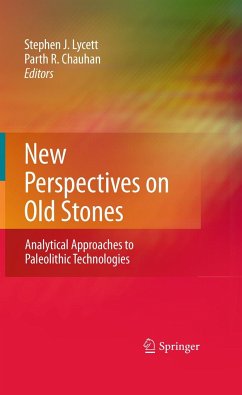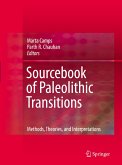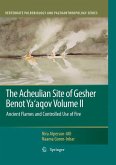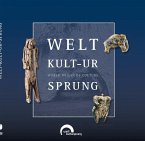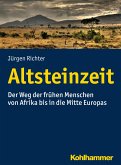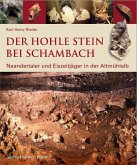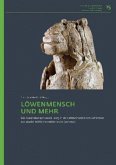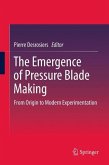As the study of Palaeolithic technologies moves towards a more analytical approach, it is necessary to determine a consistent procedural framework. The contributions to this timely and comprehensive volume do just that. This volume incorporates a broad chronological and geographical range of Palaeolithic material from the Lower to Upper Palaeolithic. The focus of this volume is to provide an analysis of Palaeolithic technologies from a quantitative, empirical perspective.
As new techniques, particularly quantitative methods, for analyzing Palaeolithic technologies gain popularity, this work provides case studies showcasing these new techniques.
Employing diverse case studies, and utilizing multivariate approaches, morphometrics, model-based approaches, phylogenetics, cultural transmission studies, and experimentation, this volume provides insights from international contributors at the forefront of recent methodological advances.
As new techniques, particularly quantitative methods, for analyzing Palaeolithic technologies gain popularity, this work provides case studies showcasing these new techniques.
Employing diverse case studies, and utilizing multivariate approaches, morphometrics, model-based approaches, phylogenetics, cultural transmission studies, and experimentation, this volume provides insights from international contributors at the forefront of recent methodological advances.
Now thanks to Lycett and Chauhan's (2010) New Perspectives on Old Stones1, Dunnell's "route to science" becomes a four-lane super-highway, clear and paved, and I hear street-lamps are being installed next week.... By reminding us of "Clarkeian trends" (see below) and linking them with advancements in, and the application of, digital recording techniques, computer programming and simulation, and flaked stone replication, the volume editors and contributors put an exclamation point on the resurgence of rational, coherent, logical, and truly "analytical" approaches to Paleolithic stone tools and detritus.
To those who have ever said "I do not need statistics to tell me about stone tools;" to those who shrug off hypothesis-testing and quantitative assessment; and, to those who rely upon authority and experience over evidence and verification, be warned: New Perspectives is a game-changer.
The papers within not only make flaked stone analysis relevant to the rest of paleoanthropology and biology via the scientific method, but epitomize productive, reality-based, and in these times of economic woe, cost-effective research.
Review by Metin I. Eren, PaleoAnthropology 2011: 199-202.
New Perspectives is a game-changer.
The papers within not only make flaked stone analysis relevant to the rest of paleoanthropology and biology via the scientific method, but epitomize productive, reality-based, and in these times of economic woe, cost-effective research.
Review by Metin I. Eren, PaleoAnthropology 2011: 199-202.
To those who have ever said "I do not need statistics to tell me about stone tools;" to those who shrug off hypothesis-testing and quantitative assessment; and, to those who rely upon authority and experience over evidence and verification, be warned: New Perspectives is a game-changer.
The papers within not only make flaked stone analysis relevant to the rest of paleoanthropology and biology via the scientific method, but epitomize productive, reality-based, and in these times of economic woe, cost-effective research.
Review by Metin I. Eren, PaleoAnthropology 2011: 199-202.
New Perspectives is a game-changer.
The papers within not only make flaked stone analysis relevant to the rest of paleoanthropology and biology via the scientific method, but epitomize productive, reality-based, and in these times of economic woe, cost-effective research.
Review by Metin I. Eren, PaleoAnthropology 2011: 199-202.
To those who have ever said "I do not need statistics to tell me about stone tools;" to those who shrug off hypothesis-testing and quantitative assessment; and, to those who rely upon authority and experience over evidence and verification, be warned: New Perspectives is a game-changer.
The papers within not only make flaked stone analysis relevant to the rest of paleoanthropology and biology via the scientific method, but epitomize productive, reality-based, and in these times of economic woe, cost-effective research.
Review by Metin I. Eren, PaleoAnthropology 2011: 199-202.
New Perspectives is a game-changer.
The papers within not only make flaked stone analysis relevant to the rest of paleoanthropology and biology via the scientific method, but epitomize productive, reality-based, and in these times of economic woe, cost-effective research.
Review by Metin I. Eren, PaleoAnthropology 2011: 199-202.
To those who have ever said "I do not need statistics to tell me about stone tools;" to those who shrug off hypothesis-testing and quantitative assessment; and, to those who rely upon authority and experience over evidence and verification, be warned: New Perspectives is a game-changer.
The papers within not only make flaked stone analysis relevant to the rest of paleoanthropology and biology via the scientific method, but epitomize productive, reality-based, and in these times of economic woe, cost-effective research.
Review by Metin I. Eren, PaleoAnthropology 2011: 199-202.
New Perspectives is a game-changer.
The papers within not only make flaked stone analysis relevant to the rest of paleoanthropology and biology via the scientific method, but epitomize productive, reality-based, and in these times of economic woe, cost-effective research.
Review by Metin I. Eren, PaleoAnthropology 2011: 199-202.

